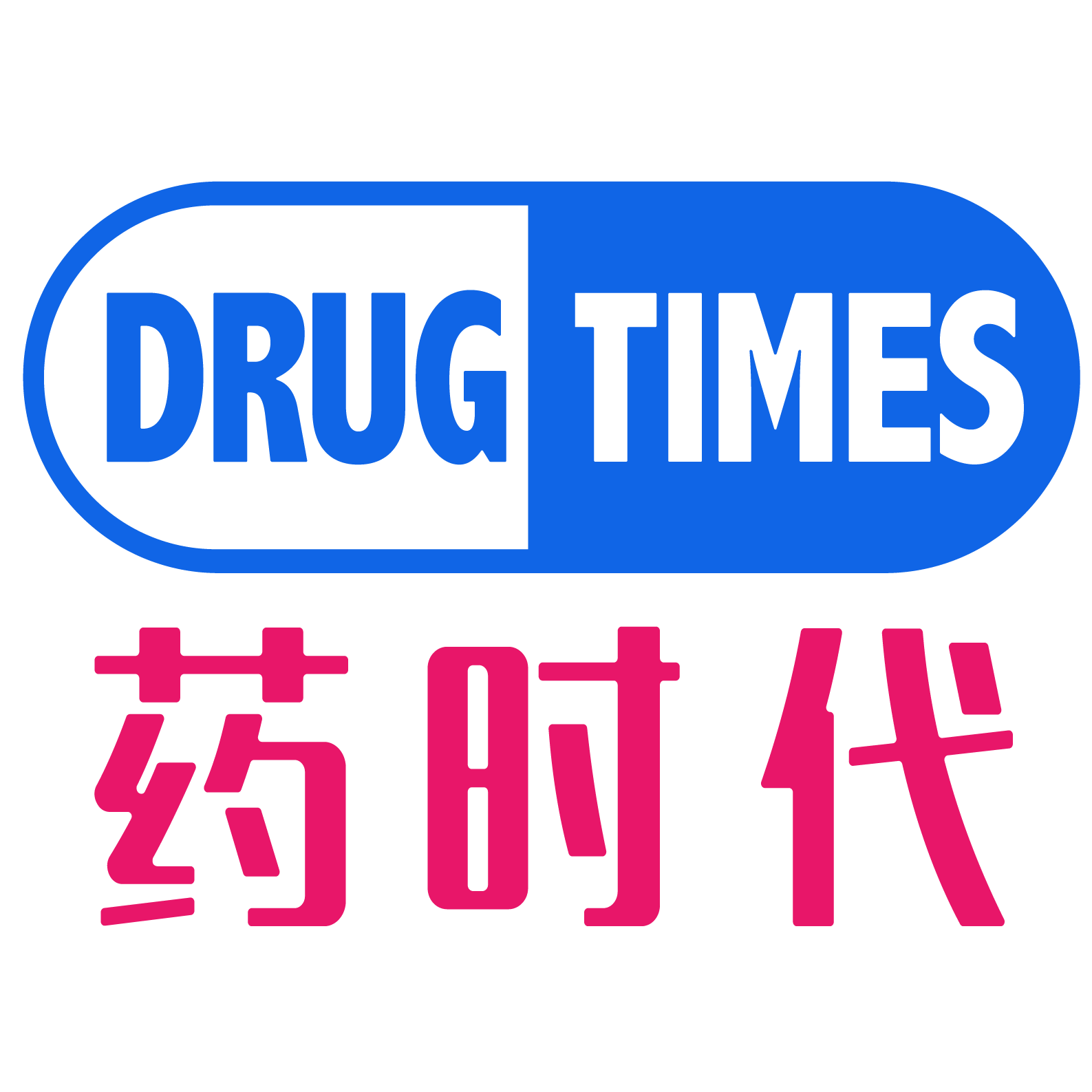原文始发于微信公众号(药时代):新篇章!又一“广谱”抗癌药获批!祝贺罗氏!Rozlytrek将造福更多患者!

2019年6月18日。世界制药巨擘罗氏制药宣布,日本厚生劳动省(MHLW)已批准其Rozlytrek®(entrectinib)用于治疗患有神经营养性酪氨酸受体激酶(NTRK)融合阳性、晚期复发性实体瘤的成人和儿童患者。

日本成为第一个批准罗氏个性化疗法Rozlytrek的国家,先于美国、欧盟。Rozlytrek也是第一个在日本被批准用于靶向NTRK基因融合的不分瘤种的药物。日本厚生劳动省曾授予Rozlytrek创新医疗产品Sakigake认定和孤儿药资格。

Rozlytrek针对NTRK融合阳性患者的疗效结果(来源:esmo.org)
NTRK基因融合已经在一系列难以治疗的实体肿瘤类型中被发现,包括胰腺、甲状腺、唾液腺、乳腺,结肠直肠和肺。
2018年11月27日,针对17种癌症有效让我们期待了两年的传奇抗癌药Vitrakvi(larotrectinib,LOXO-101)终于获得FDA批准,用于治疗患有NTRK基因融合的局部晚期或转移性实体瘤的成人和儿童患者。这是世界上第一款针对NTRK基因融合的精准疗法。
里程碑!针对17种癌症有效的传奇抗癌药LOXO-101震撼获批!这7个问题一定要了解

同时,Rozlytrek也正在日本接受更多的监管审评,包括用于治疗ROS1融合阳性的局部晚期或转移性非小细胞肺癌(NSCLC)患者。
“今天对Rozlytrek的批准代表了个性化医疗保健的新篇章,那就是应用先进的诊断技术根据它们的分子驱动因素,而非它们在体内的位置,来提供针对癌症的精准药物,” 罗氏公司首席医学官兼全球产品开发主管Sandra Horning博士表示,“我们很自豪能够凭借这款新型疗法而走在个性化医疗的最前沿,我们期待与世界各地的监管机构合作,尽快让Rozlytrek惠及更多患有NTRK融合阳性癌症的患者以及ROS1融合阳性的非小细胞肺癌患者。“
了解详情,欢迎阅读新闻稿!药时代将继续密切关注,及时报道。
更多最新进展,欢迎参加2019年7月12日、13日药时代主办的“新靶点 新技术 新机遇 助力新跨越!——2019中国抗癌药高峰论坛”!
—— 新闻稿 ——
Japan becomes the first country to approve Roche’s personalised medicine Rozlytrek
-
First tumour-agnostic medicine approved in Japan for adult and paediatric patients with NTRK fusion-positive advanced recurrent solid tumours
-
Approval supported by the data mainly from the pivotal Phase II STARTRK-2 study showing that Rozlytrek shrank tumours in more than half of people with NTRK fusion-positive solid tumours, across 10 different tumour types, including those with central nervous system metastases
-
Rozlytrek is also undergoing review in Japan for the treatment of ROS1 fusion-positive non-small cell lung cancer
Roche (SIX: RO, ROG; OTCQX: RHHBY) today announced that Japan’s Ministry of Health, Labour and Welfare (MHLW) has approved Rozlytrek®(entrectinib) for the treatment of adult and paediatric patients with neurotrophic tyrosine receptor kinase (NTRK) fusion-positive, advanced recurrent solid tumours. Rozlytrek is the first tumour-agnostic medicine to be approved in Japan that targets NTRK gene fusions, which have been identified in a range of hard-to-treat solid tumour types, including pancreatic, thyroid, salivary gland, breast, colorectal, and lung.1It has been granted Sakigake designation and orphan drug designation by the MHLW.2
Rozlytrek is also undergoing regulatory review in Japan for the treatment of people with ROS1 fusion-positive locally advanced or metastatic non-small cell lung cancer (NSCLC).2
“Today’s approval of Rozlytrek represents a new chapter in personalised healthcare, applying advanced diagnostics to deliver precision medicines that target cancers based on their molecular drivers instead of their location in the body,” said Sandra Horning, MD, Roche’s Chief Medical Officer and Head of Global Product Development. “We are proud to be at the forefront of personalised medicine with this novel treatment approach, and we look forward to working with regulatory agencies around the world to bring Rozlytrek to more patients with NTRK fusion-positive cancer, as well as to those with ROS1 fusion-positive NSCLC, as soon as possible.”
The data package for this first approval of Rozlytrek includes the pivotal Phase II STARTRK-2, Phase I STARTRK-1 and Phase I ALKA-372-001 trials, as well as data from the Phase I/II STARTRK-NG study in paediatric patients. Results showed:
-
In the pivotal Phase II STARTRK-2 study, Rozlytrek shrank tumours in more than half (objective response rate [ORR] = 56.9 percent) of people with NTRK fusion-positive solid tumours. Objective responses to Rozlytrek were seen across 10 different solid tumour types (median duration of response [DoR] = 10.4 months), including in people with and without CNS metastases at baseline.
-
Importantly, Rozlytrek also shrank tumours that had spread to the brain in more than half of people (intracranial response [IC] ORR = 50.0 percent).2
-
In the STARTRK-NG study, Rozlytrek shrank tumours also in children and adolescents who had NTRK fusion-positive solid tumours including the patients with primary CNS tumours.3
-
The most commonly reported adverse reactions include constipation, altered sense of taste (dysgeusia), diarrhoea, dizziness, fatigue, swelling (oedema), weight increase, anaemia, blood creatinine increase, shortness of breath (dyspnea), and nausea.2
Biomarker testing for NTRK gene fusions is the only way to identify people who may be eligible for treatment with Rozlytrek. Roche is leveraging its expertise in developing personalised medicines and advanced diagnostics, in conjunction with Foundation Medicine, to help identify people with NTRK gene fusions using a companion diagnostic that is undergoing review.
About the supporting data
The data package for this approval includes the pivotal Phase II STARTRK-2, Phase I STARTRK-1 and Phase I ALKA-372-001 trials. In addition, data from the Phase I/II STARTRK-NG study in paediatric patients were also included in the submission. The studies enrolled people across 15 countries and more than 150 clinical trial sites. Tumour types evaluated in the studies included breast, cholangiocarcinoma, colorectal, gynaecological, neuroendocrine, non-small cell lung, salivary gland, pancreatic, sarcoma and thyroid cancers.1,2
-
STARTRK-2is a Phase II, global, multicentre, open-label basket study in people with solid tumours that harbour an NTRK1/2/3, ROS1 or ALK-positive gene fusion. The primary endpoint is objective response rate (ORR), and duration of response (DoR) is a secondary endpoint. Other secondary outcome measures include time to response, clinical benefit rate, intracranial tumour response, progression-free survival (PFS), central nervous system (CNS) PFS and overall survival (OS).4
-
STARTRK-1is a Phase I, multicentre, open-label dose escalation study of a daily continuous dosing schedule in people with solid tumours with NTRK1/2/3, ROS1 or ALK gene fusions in the US and South Korea. The trial assessed the safety and tolerability of Rozlytrek via a standard dose escalation scheme and determined the recommended Phase II dose.5
-
ALKA-372-001is Phase I, multicentre, open-label dose escalation study of an intermittent and continuous Rozlytrek dosing schedule in people with advanced or metastatic solid tumours with TRKA/B/C, ROS1 or ALK gene fusions in Italy.2
-
STARTRK-NGis a Phase I/II dose-escalation and expansion study evaluating the safety and efficacy of Rozlytrek in children and adolescent patients with no curative first-line treatment option, recurrent or refractory extracranial solid tumours or primary CNS tumours, with or without TRK, ROS1 or ALK fusions.3
About NTRK fusion-positive cancer
Neurotrophic tyrosine receptor kinase (NTRK) fusion-positive cancer occurs when the NTRK1/2/3 genes fuse with other genes, resulting in altered TRK proteins (TRKA/TRKB/TRKC) that can activate signaling pathways involved in proliferation of certain types of cancer. NTRK gene fusions are tumour-agnostic, meaning they are present in tumours irrespective of site of origin. These fusions have been identified in a broad range of solid tumour types, including breast, cholangiocarcinoma, colorectal, gynaecological, neuroendocrine, non-small cell lung, salivary gland, pancreatic, sarcoma and thyroid cancers.1
About Rozlytrek
Rozlytrek (RXDX-101) is an oral medicine for the treatment of locally advanced or metastatic solid tumours that harbour NTRK1/2/3, as well as in development for the treatment of ROS1 gene fusions. It is a selective tyrosine kinase inhibitor designed to inhibit the kinase activity of the TRK A/B/C and ROS1 proteins, whose activating fusions drive proliferation in certain types of cancer.6,7Rozlytrek can block ROS1 and NTRK kinase activity and may result in the death of cancer cells with ROS1 or NTRK gene fusions.6,7
Rozlytrek has been granted Priority Review by the FDA for the treatment of NTRK fusion-positive, locally advanced or metastatic solid tumours in adult and paediatric patients who have either progressed following prior therapies or as an initial therapy when there are no acceptable standard therapies, and for the treatment of people with metastatic, ROS1 fusion-positive NSCLC. It has also been granted Priority Medicines (PRIME) designation by the European Medicines Agency (EMA) and Sakigake designation and orphan drug designation by MHLW.2
About Roche
Roche is a global pioneer in pharmaceuticals and diagnostics focused on advancing science to improve people’s lives. The combined strengths of pharmaceuticals and diagnostics under one roof have made Roche the leader in personalised healthcare – a strategy that aims to fit the right treatment to each patient in the best way possible.
Roche is the world’s largest biotech company, with truly differentiated medicines in oncology, immunology, infectious diseases, ophthalmology and diseases of the central nervous system. Roche is also the world leader in in vitro diagnostics and tissue-based cancer diagnostics, and a frontrunner in diabetes management.Founded in 1896, Roche continues to search for better ways to prevent, diagnose and treat diseases and make a sustainable contribution to society. The company also aims to improve patient access to medical innovations by working with all relevant stakeholders. Thirty medicines developed by Roche are included in the World Health Organization Model Lists of Essential Medicines, among them life-saving antibiotics, antimalarials and cancer medicines. Moreover, for the tenth consecutive year, Roche has been recognised as the most sustainable company in the Pharmaceuticals Industry by the Dow Jones Sustainability Indices (DJSI).
The Roche Group, headquartered in Basel, Switzerland, is active in over 100 countries and in 2018 employed about 94,000 people worldwide. In 2018, Roche invested CHF 11 billion in R&D and posted sales of CHF 56.8 billion. Genentech, in the United States, is a wholly owned member of the Roche Group. Roche is the majority shareholder in Chugai Pharmaceutical, Japan. For more information, please visitwww.roche.com.
All trademarks used or mentioned in this release are protected by law.
References
-
Demetri GD et al. Efficacy and Safety of Entrectinib in Patients with NTRK Fusion-Positive (NTRK-fp) Tumors: Pooled Analysis of STARTRK-2, STARTRK-1 and ALKA-372-001. Presented at ESMO 2018; October 19-23, 2018; Munich, Germany. Abstract LBA17.
-
F. Hoffman La Roche Ltd. Data on file.
-
Robinson G, et al. Phase 1/1B trial to assess the activity of entrectinib in children and adolescents with recurrent or refractory solid tumors including central nervous system (CNS) tumors. American Society of Clinical Oncology; May 31-Jun 4, 2019; Chicago, USA. Abstract 10009.
-
ClinicalTrials.gov. Basket Study of Entrectinib (RXDX-101) for the Treatment of Patients With Solid Tumors Harboring NTRK 1/2/3 (Trk A/B/C), ROS1, or ALK Gene Rearrangements (Fusions) (STARTRK-2). [Internet; cited 2019 May 23]. Available from:https://clinicaltrials.gov/ct2/show/NCT02568267.
-
ClinicalTrials.gov. Study of Oral RXDX-101 in Adult Patients With Locally Advanced or Metastatic Cancer Targeting NTRK1, NTRK2, NTRK3, ROS1, or ALK Molecular Alterations. (STARTRK-1). [Internet; cited 2019 May 19]. Available from:https://clinicaltrials.gov/ct2/show/NCT02097810.
-
Ahn M-J, Cho BC, Siena S, et al. Entrectinib in patients with locally advanced or metastatic ROS1 fusion-positive non-small cell lung cancer (NSCLC). Presented at: IASLC 18th World Conference on Lung Cancer; October 15-18, 2017; Yokohama, Japan. Abstract 8564.
-
Rolfo, et al. Entrectinib: a potent new TRK, ROS1, and ALK inhibitor. Expert Opin Investig Drugs. 2015;24(11):1493-500.
发布者:药时代,转载请首先联系contact@drugtimes.cn获得授权

 为好文打赏 支持药时代 共创新未来!
为好文打赏 支持药时代 共创新未来! 